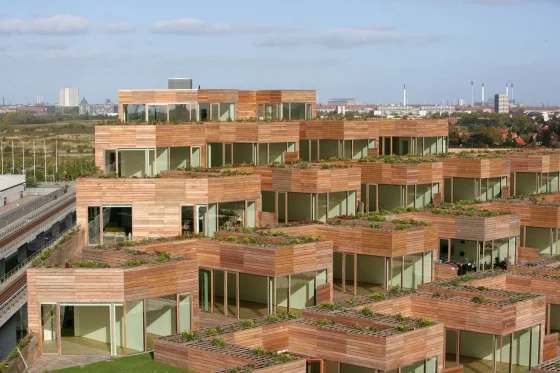XLM Insight | Stellar Lumens News, Price Trends & Guides
XLM Insight | Stellar Lumens News, Price Trends & Guides
Alright, let's dive into what's happening in Denmark. On the surface, it looks like a flurry of government initiatives aimed at boosting housing and easing financial burdens. But underneath, the numbers suggest a more complex—and potentially precarious—situation.
The Danish government's plan to expand senior housing communities with a half-billion kroner investment over four years sounds good. And the proposal to build 25,000 new public housing units over the next decade? Ambitious, to say the least. They're even raising the maximum construction cost allowed for public housing, which is interesting, especially in cities like Copenhagen and Aarhus, where affordable housing projects have been stalling. But here's the rub: are these investments sustainable, given the broader economic climate?
Consider this: DFDS, a major shipping and logistics company, is cutting 400 jobs to save 300 million DKK. That's a pretty significant restructuring. And while Vestas’ stock has seen a 53% increase in 2025, entering the year at its lowest level in nearly five years raises questions about long-term stability. Are these housing initiatives a necessary boost, or are they potentially overextending resources in a shaky economic landscape?
The plan to ease mortgage rules, especially in rural areas, is another interesting move. It's clearly aimed at stimulating the economy outside the major cities. But will it lead to responsible lending, or are we looking at a potential subprime situation down the line? It’s a gamble, no doubt.
Denmark is also making some big bets in other sectors. Guldborgsund Municipality sold 35 hectares of commercial land to GARBE Data Center for a massive AI datacenter, potentially investing up to 20 billion DKK. That’s a huge influx of capital and could be a game-changer for the region. But AI is a volatile field. What happens if the investment doesn't pan out?
And then there's the defense spending. The Danish Parliament approved over 18 billion DKK over four years for research, including defense and security projects, with about 200 million DKK annually specifically for defense. (Another source lists 13.5 billion DKK for research and innovation over four years – a discrepancy that needs clarification.) The EU is also allocating more budget funds to defense as part of the ReArm Europe plan. This shift towards defense spending suggests a growing concern about geopolitical instability. But is this the best use of resources, or could that money be better invested in other sectors?
Meanwhile, the retail landscape is shifting. Rema 1000 has overtaken Netto in market share, holding 18.2 percent compared to Netto's 17.9 percent in 2025—a seemingly small shift, but indicative of changing consumer preferences and market dynamics. And let's not forget the closure of all Jensens Bøfhus restaurants, taken over by competitor Bones. It's a sign of the times, as they say.

I've looked at hundreds of these economic reports, and the simultaneous expansion in some sectors while others contract is a pattern that often precedes a correction.
The government's proposal to allow teachers to use physical force in specific situations with disruptive students is... well, it's alarming. It speaks to a growing problem with classroom management and a potential breakdown in the education system. What are the long-term consequences of such a policy?
And then there are the restrictions introduced on May 2, 2025, on work for international students, which have already caused a drop in applications from Bangladesh and Nepal. The aim was to prevent abuse of the system, but what's the real cost of deterring international talent? Are we throwing the baby out with the bathwater?
Even the seemingly positive news about Copenhagen Airport reporting its busiest October in history (over three million passengers, 11% higher than last year) needs to be viewed with caution. Increased air travel contributes to carbon emissions. Is this growth sustainable in the long run, given Denmark's climate goals?
The dry weather expected across Denmark this weekend? It's a minor detail, but it's a reminder of the broader environmental challenges the country faces.
Denmark is making some bold moves, but the question remains: are these initiatives sustainable in the face of economic headwinds and global uncertainty? The housing boom, the tech investments, the defense spending – it all adds up to a high-stakes gamble. Only time will tell if it pays off, or if Denmark is building a house of cards.